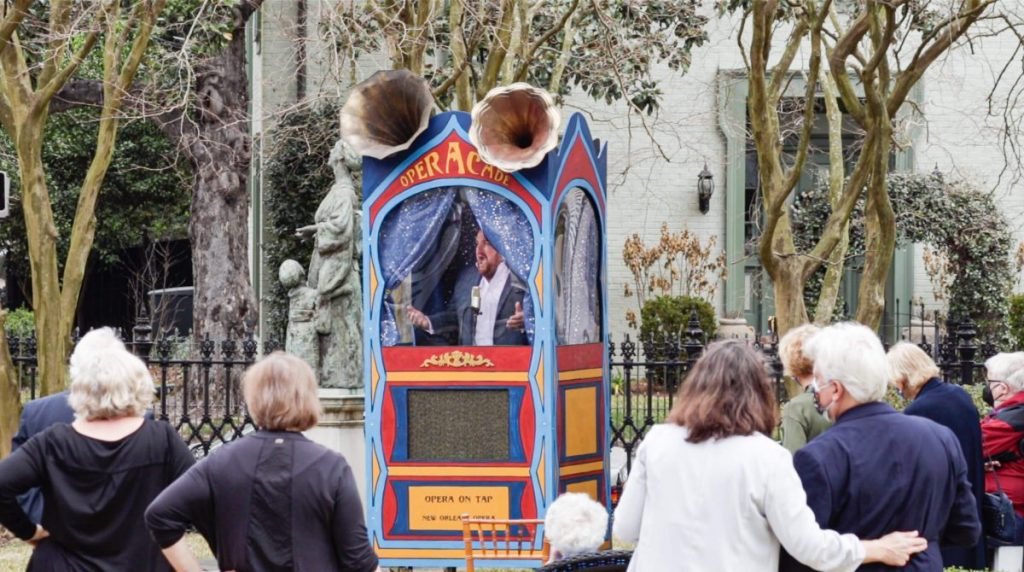
Opera on Tap, an organization that makes opera more accessible to a wider audience, started dabbling in virtual reality well before the pandemic.
Back in 2016, the Brooklyn, New York-based nonprofit staged what was billed as “the world’s first VR opera,” called The Parksville Murders. “We didn’t know what we were doing,” said founder Anne Hiatt. “It’s such a nascent platform in terms of entertainment.”
Now, prompted by massive upheaval in the entertainment world during the pandemic, Opera on Tap is making larger bets on VR, with a new show about Joan of Arc and an in-house virtual reality portal in the works.
[Related: Here’s Why Film Director Chloe Zhao’s Golden Globes Win is Historic]
In the new show, the audience will follow a modern-day version of the patron saint in the form of five homeless women. The audience will be able to follow different women when the Joans cross paths throughout the interactive, site-specific opera, according to Hiatt.
Opera on Tap has partnered with homeless shelters to allow women to tell their stories, and is compensating them for their contributions to the show’s narrative.
Hiatt plans to incorporate augmented reality smartglasses, similar to Google Glass, which are reportedly rolling out in the next year or so. “The idea is that an audience member can put them on and experience the opera though augmented reality,” she said. “We’re working on technology development and figuring out the approach we’ll use.”
“It’s about taking opera out of the concert hall and into places where people could experience it intimately,” Hiatt added.
There are other ways the organization is doing just that. Hiatt and her six-person staff are currently building pre-recorded, interactive educational lessons for students that will roll out in spring. “This is a new process for us, this idea of selling a digital product,” Hiatt said. “We definitely expect to see it as a source of revenue for us, which could potentially double our budget in the next couple of years.”
They’re also sending “OperaCades,” ornate theaters on wheels built in partnership with New Orleans Opera, around to different cities so that music lovers can safely enjoy a live performance.
[Related: It’s Been 50 Years Since Woodstock — and Women Are Still Far from Center Stage]
“I’m hopeful that [the pandemic] has also shed some light on how much artists contribute to the economy and that more equitable structures will be built to support artists,” Hiatt said.
The founder, who saw a 78% decrease in earned revenue since Covid hit, said she relies primarily on existing donors and federal arts grants.
“It’s been a real collective effort to keep alive during this time,” she said.

